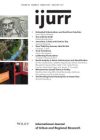This article examines the linkages between the housing options of the poor and their household composition. It gathers field data among renters and owners in low‐income neighborhoods of Guadalajara, Mexico, and it argues that informal‐sector home ownership is not favorable to the conditions of female householders. Thus, housing assistance programs that focus solely on conditions of housing in informal settlements and that promote home ownership in peripheral areas practice a discriminatory approach to housing that cannot serve the needs of a growing percentage of low‐income households. Meanwhile, inner‐city rental units, with the greatest concentration of female householders, are being allowed to deteriorate and may soon be erased from the city’s landscape on account of real estate pressure. The paper calls for housing policy‐makers and researchers to broaden their scope of concern to include renting and sharing as important shelter alternatives of the poor, and also to account for the variations in housing strategies of the poor based on changing patterns of household composition.
Details
Written by:
Faranak Miraftab
Digital Object Identifier (DOI)
10.1111/1468-2427.00074
About DOI
Read full article as PDF
Read full article as HTML
See the references for this article
